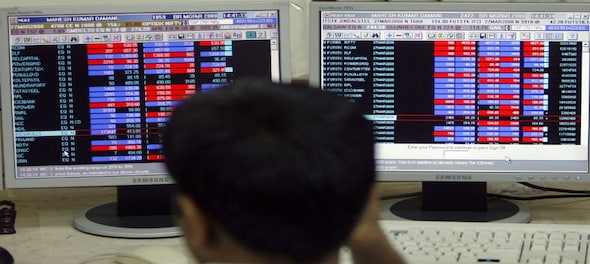
Come September 1, 2021, market participants will have to shell out more towards margins as the fourth phase of peak margin rules by SEBI takes effect. Under the rules, brokers will now have to collect the entire margin payable by the client before the end of the trading session.
For instance, if the margin applicable on a particular trade is 30 percent of the transaction value, the entire 30 percent will need to be deposited by the client. The motive behind the SEBI move is to curb excess speculation and ensure that the settlement system is not at risk from broker defaults. The stringent norms also mean that brokers will not be in a position to use one client's funds to meet the margin requirements of another client.
Commodity market brokers feel the new rules could hurt trading volumes for many of the smaller trading firms as their clients cut back on trades because of increased margin requirements.
Earlier, margins were collected upfront and calculated on the basis of the end-of-day positions. The broker funded intraday positions of the clients as long as they brought the outstanding by the end of the day.
The new rules mandate the exchange to randomly select four times in the day to take snapshots of all margins, the highest margin of which will then become the peak margin.
Read here
Experts point out that the new rules have largely impacted the trading volumes in the commodity segment due to its high contract value and leading to huge margins requirements for traders.
India’s largest commodity bourse Multi Commodity Exchange (MCX), in its recent annual report, said, “There has been a drop in traded volumes since the Peak Margin reporting obligation has been implemented and the fall in volumes may be further accentuated after 100% of the obligations reporting comes into effect.”
MCX has a monopoly in bullion metals, base metals, and crude oil trading in India.
Additionally, the transaction costs are also more with Commodity Transaction Tax (CTT) constituting a major portion of this. The high cost of transactions discourages larger plyers like hedgers. Thus, commodity market participants are facing the double whammy of higher margin requirements and higher transaction costs.
“Commodity trading has been adversely impacted in recent times due to a number of factors. The Commodity Transaction Tax (CTT), competition from discount brokerages and investors’ attraction towards the equity market are among such issues. In addition to this, Sebi’s peak margin rules have further hit the trading hard,” said Ajay Kedia, Director, Kedia Advisory.
Kedia added the commodity trading is a high-ticket investment. The current margin requirement for trading in the segment is already huge. Further, additional margin due to the new regulation will drag the already shrunk volumes.
Increase in the margin requirements has impacted the trading volumes, the trading value or turnover has not been impacted to that effect, experts said. This is because of a sharp surge in the prices of all commodities, especially highly traded commodities gold, silver and copper.
These rules have not impacted the exchange business as such, Kedia added, saying that the calculation of exchange fees is on the total turnover which has risen due to a sharp rise in commodity prices.
Experts also believe while the rules, though will be beneficial in the long run, it may encourage ‘informal’ trading in the short term.
“Sebi’s new margin rules will strengthen the capital markets 6-8 years down the line. However, such huge margin requirement and stricter rules can also lead to trading in informal setups or illegal trading activities,” said Amit Sajeja, Vice President, Research- Commodities & Currencies, Motilal Oswal.
Sajeja is of the view that proper implementation of existing regulations, firming up risk management, and educating and monitoring the brokers should be the priority.
Stricter norms have led to a sharp increase in trading volumes in the illegal or informal market, popularly called Dabba trading.
Often known as off-exchange transaction, dabba trading is estimated to be worth Rs 3 lakh crore daily.
"The trading volumes in dabba market have risen recently due to the high cost of transactions in the formal market. Equity trading volumes have increased 20-30 percent, while that in commodity trading has jumped more than 50-60 percent as compared to that of last year," a Mumbai-based dabba trader said.
“Lower volumes have also dented the liquidity in the formal markets, which has resulted in a larger difference between the ask price and bid price of the commodity on the terminals. With CTT and lack of leverage funding, more investors are shifting towards Dabba trading,” said the person.
Meanwhile, commodity exchanges have recently introduced a number of measures to attract investors and traders and to minimize the impact of hefty margins.
The introduction of commodity indices such as MCX Bulldex, MCX Metldex and the upcoming MCX Energdex are all steps in the same direction, Kedia said.
“Further, the options trading in commodities have gained traction due to lower margin requirements, less brokerage and minimum expenses. The cost of carry and the cost of transaction is also low. This introduction of options trading in commodities was a step in the right direction,” Kedia said.
The exchanges have also reduced the lot sizes of certain commodities which will help lessen the investment requirement for commodity trading, he added.
Check out our in-depth Market Coverage, Business News & get real-time Stock Market Updates on CNBC-TV18. Also, Watch our channels CNBC-TV18, CNBC Awaaz and CNBC Bajar Live on-the-go!


'Borrowed' leaders: Congress hits out at AAP for not fielding their own candidates in Punjab
Apr 28, 2024 9:53 PM
EC asks AAP to modify election campaign song and Kejriwal's party is miffed
Apr 28, 2024 9:25 PM

